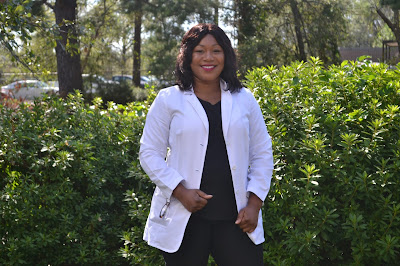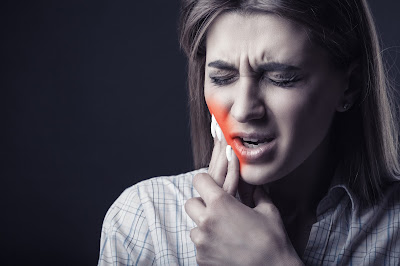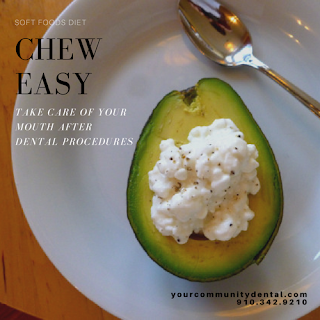A Case For Not Eating: Can Fasting Benefit Your Oral Health?

There always seems to be a better dieting concept around the
corner: Keto, Paleo, low-calorie and no-sugar, and the latest, fasting
(abstaining from food for a period of time). But, with a possibility for
physical and oral health benefits,
fasting may be more than just a diet fad.
At first thought, it makes sense why fasting would be
beneficial both physically and orally. Though there are many types of fasts—dry
fast, absolute fast, partial fast—physically you are, well, starving yourself.
So it makes sense your body would react by burning fat for energy. Orally, by
having less bacteria and saliva in the mouth due to constant eating, or rather
not constantly eating, the teeth and gums have a chance to grow and heal and
thrive.
Intermittent Fasting
As we increasingly become aware of our physical health and the aging process, we find ourselves mining for new methods, new understandings of
how we can feel and look our very best, all the time. Cynthia Thurlow, an
experienced nurse practitioner and functional nutritionist, challenges our
common dieting practices (i.e., three meals a day, and snacking throughout the
day) in a recent Ted Talk by providing cause for what she calls “intermittent
fasting.” She begins her presentation by stating that breakfast is actually not
the most important meal of the day and that recent encouragements to snack
throughout the day are not what we should be doing. The most beneficial meal we
can get might just be no meal at all.
She goes on to cite numerous examples where she has seen
people integrate intermittent fasting into their lives only to find themselves
much healthier and happier.
Her key points:
- Eating three meals a day/snacking throughout overtaxes our organs. This overworking of our body makes us age faster and lose energy quicker.
- Intermittent Fasting, the “absence of food during a prescribed time period,” gives your body time to react and rejuvenate itself. She suggests fasting for a period of sixteen hours and then taking a period of eight hours when you can eat. Begin by fasting for ten to twelve hours then move up to sixteen. During the fasting period you are able to drink coffee and tea and, of course, water.
- Thurlow suggests trying intermittent fasting for thirty days before deciding if it is truly beneficial or not for you.
Effects on Oral
Health
There is a good case for the physical effects of fasting,
but what about how it affects our oral health? Is it truly good for our teeth
and gums to go that long without food?
According to the famous naturopath Dr. Herbert Shelton,
fasting can have dramatically beneficial effects on eradicating tooth decay and
gum disease, but he also notes that a poorly planned and executed fast can
cause damage to oral health.
Fasting
relaxes the body by giving it a chance to rest from all the chewing and
swallowing and digesting. We forget that our bones and gums are living things
that need to be used, but also need breaks. The absence of food lets our teeth
and gums repair, and by drinking water during a fast you are able to have a
thorough rinse during the process.
So if you’ve had it with the fad diets, and you would like
to give your oral health a chance to improve, look into fasting. Here are a few
tips to get you going:
- Start by fasting for twelve hours and count your sleep time towards these hours. So if you were to stop eating by 7pm, you could eat breakfast at 7am. Not too bad, right? You don’t even have to do this every day. Pick a few days a week to get you going.
- Next, move up to sixteen hours. Typically people at this step stop eating around 8pm, skip breakfast the next morning, and eat again around noon.
- Once you have gotten used to fasting the 16:8 method (16-hour period fasting: 8- hour period eating) for a few days a week, move on to alternating the days you fast—one off, one on.
- From here, vary the way you fast to see which fits into your lifestyle best. You can fast every day, every other, or go weeks where you fast and then take weeks off. It’s really up to you.
Regardless of how used to fasting you are, if you ever find
yourself getting dizzy or nauseous it is a good idea to eat something. Good
luck!
-Andrae Bergeron
*Sources:





Comments
Post a Comment